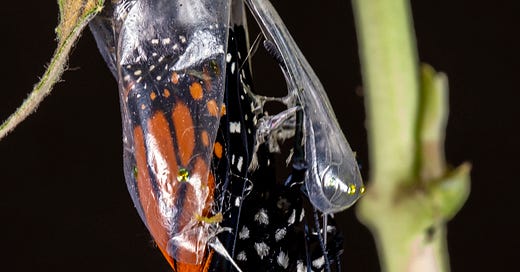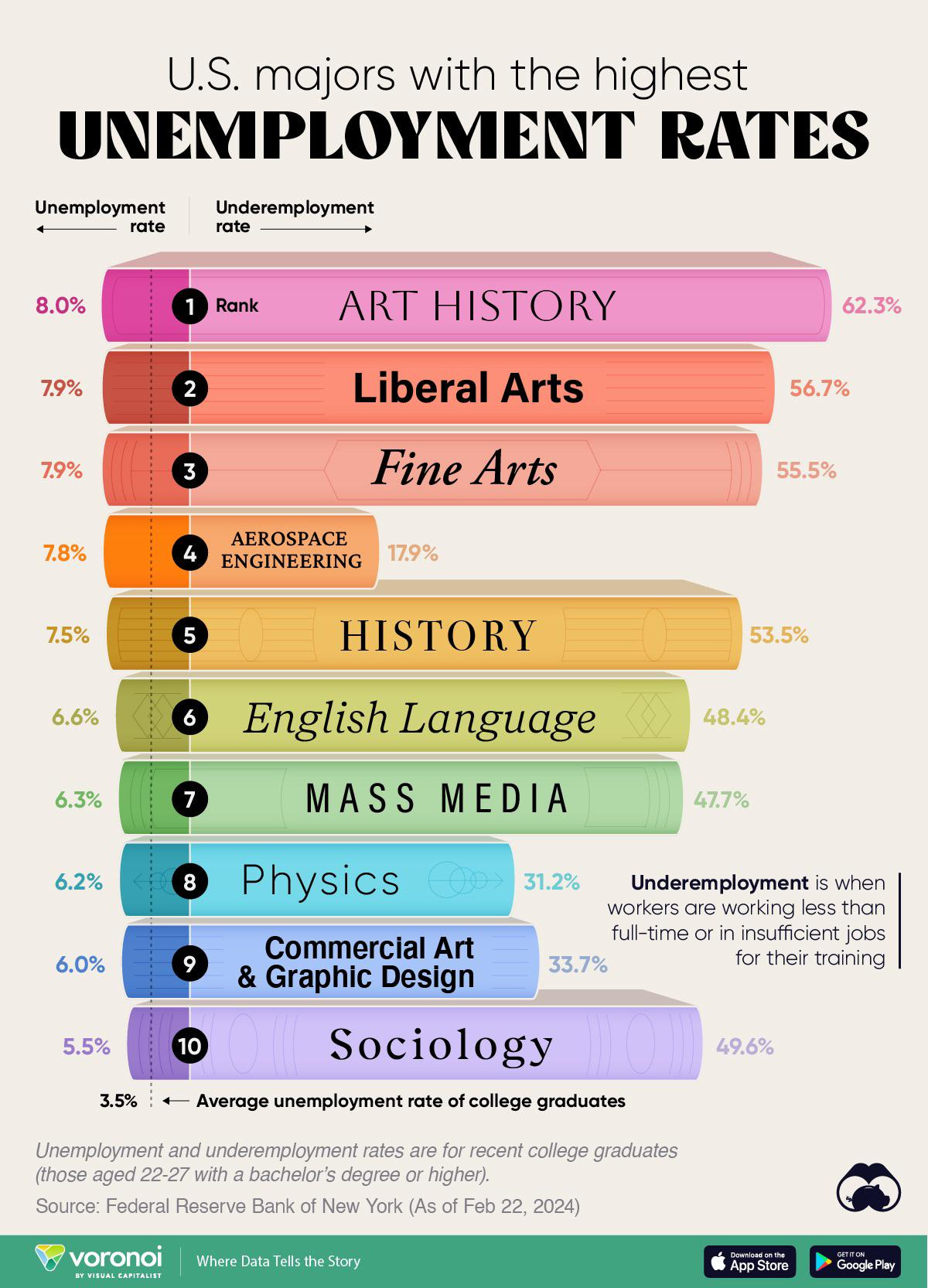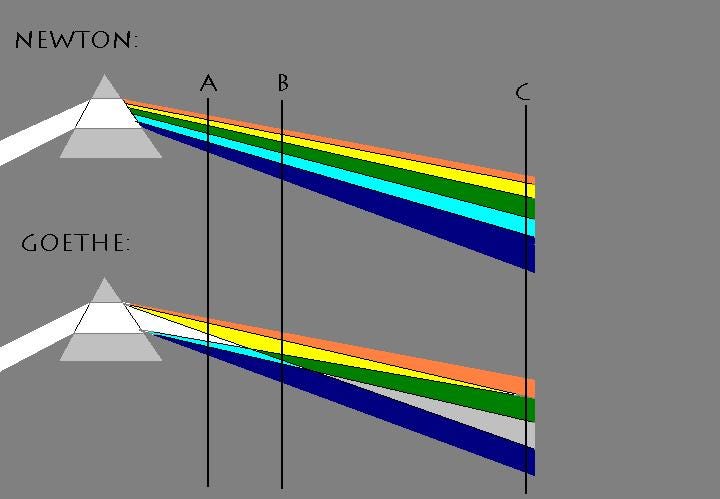Now that you have seen a picture of a pretty butterfly emerging from its chrysalis, which was once upon a time the primary metaphor of evolution over a thousand years before Charles Darwin was even a sperm and egg made by his parents, I am going to warn you that this whole post is basically just a bunch of major heresy relative to what you’re taught about science in school, and literally for some people in more so-called fundamentalist religions as well.
Substack has made it increasingly clear to me that my normal way of discussing and thinking about the idea of evolution is something I need to share here. Off and on evolution will come up as a topic and I’ll end up saying “I believe in evolution, but not the way it’s taught in school,” or if I’m feeling particularly heretical, “I believe in evolution, but not the way Darwin said it happened.” After this post I’m going to be resisting the urge to rename this blog McKuen Heresies like it’s something from 40k or that The Chrysalids novel I mentioned off and on and discussed more in-depth in my last post, which is the origin of the whole heresy and mutants thing in Warhammer 40k in the first place despite the fact almost no one has even heard of that book. Dune has the God-Emperor, but The Chrysalids is why he’s the God-Emperor of Mankind specifically and the whole myth of the Imperium is centered around some kind of normative conception of humanity that’s being upended by mutants. Of course, this is a great way to start a super serious essay on the topic of evolution in real life, so let’s begin.
When you are in high school biology, and often in college biology, especially if you take a biology elective rather than being a biology major but I suspect even for them, you learn a lot of things that are flatly wrong, much like the idea that electrons orbit around the nuclei of atoms in physics, except the wrong ideas in biology tend to have bigger repercussions and rub people the wrong way much more often. I would almost say most things you learn in biology are wrong but that’s not true. The wrong information seems to exclusively arise in three areas: evolution, genetics, and neurology. These topics just happen to be the most interesting for reasons unrelated to controversies around them.
For example, almost everything you learn about human genetics in high school biology class is wrong:
Myths of Human Genetics: Introduction (udel.edu)
When people are showing GATTACA as if it were a documentary, I’m not really going to care about introducing my essay on biology with Warhammer 40k and John Wyndham. Let’s just call everyone mutants again while I’m at it. Mutants and norms, the fact is, if basically all of human genetics is taught incorrectly, they show poorly-written fiction as if it were factual, and they don’t even bother to teach you why plants are green, then I strongly suspect that the entire theory of evolution is something that’s incorrectly taught as well. Though it doesn’t justify all the creation scientist and intelligent design types (which should have no bearing on religion, you can believe in literal creation and not believe in so-called creation science,) I do think people have very good reasons to be suspicious of the particular theory of evolution which they are taught in school, they just get completely lost on what to replace it with which is where the problems arise. They are told to have blind faith in Darwinism and this seems so obviously wrong that people opt to have blind faith in people hawking a stereotypical version of faith instead, even though nothing about that version of faith is as traditional as they might think.
The story which we are told in biology class is that once upon a time, everyone believed that species were all created by God in a fixed number 6000 years ago until Charles Darwin sailed on the Beagle and discovered evolution, and there was also this Lamarck guy before then but he was obviously completely wrong and irrelevant because otherwise if you lost an arm all your descendants would have one arm, and there was no evolutionary thought at all before this. Then you hear something about “Social Darwinism” and are assured this is a complete misinterpretation of Darwin’s theories, and if you’re inclined to be skeptical of the idea of evolution by natural selection as its taught to you this does nothing to help your suspicions that you’re being sold something not only false but also kind of evil at all.
In fact, Darwin did not create the theory of evolution, though this is at least hinted at when people even bother to mention Lamarck (in order to completely and totally dismiss everything he said, of course, though the real evolutionary theory is neither Darwin’s nor Lamarck’s in my opinion.) The theory of evolution in some form can be seen as early as Aristotle, who speculated that humanity might have come from some kind of grub-like organism which underwent metamorphosis in a chrysalis similar to how a caterpillar turns into a butterfly, hence the opening picture and a term evolutionary theories often used to be known by: metamorphology. Lucretius is also widely attributed with creating the idea of evolution, and Lucretius certainly outlined the idea more thoroughly than Aristotle’s speculations. What Charles Darwin did for evolutionary theories was propose a mechanism, even though he wasn’t the first person to do this either. The mechanism Charles Darwin proposed was Malthusianism applied to nature at large. This is not my speculation, these are Charles Darwin’s own words about what his inspirations were. Whenever people say Social Darwinism has nothing to do with Charles Darwin and is a misinterpretation, I would have to disagree. Malthusianism is basically just Social Darwinism minus the eugenics.
A Theory by Which to Work | AMNH
Darwin always read widely, on the lookout for new ideas. In late September 1838 he found himself reading--"for amusement," he later recalled--the "Essay on Population" by political economist Reverend Thomas Malthus. In this essay, Malthus argued that human population could quickly outstrip the food supply: competition for food or space was a constant force keeping population in check.
Darwin immediately saw how the idea could be applied to the natural world. More animals were born than could survive. They constantly struggled against one another for food or room to grow, he thought. That meant any plant or animal with a competitive edge--drought tolerance, a thicker-than-average coat--could live longer and leave more offspring than its fellows. The presence of such adaptations controlled, in effect, which individuals would represent the species in the next generation.
Now, you can’t derive ought from is, and just because Malthusianism is horrible doesn’t mean Charles Darwin’s mechanism for evolution would be wrong. However, we have evidence that it actually is generally completely off-base.
“Evolution driven by recombination” applies to anything that reproduces sexually. In other words, natural selection decreases the likelihood of mutations surviving, even beneficial ones, because the pressures of scarcity and the survival of the fittest is basically making species behave more conservatively and reproduce less often. Darwin’s mechanism for evolution does apply in some cases: it applies for, say, antibiotic-resistant bacteria, because bacteria just produce a ton of themselves with literally no investment at all and if you introduce an antibiotic the only ones that will survive are the ones that have the gene for antibiotic resistance, which can arise randomly enough.
Anything that just reproduces by copying itself, spores, and that kind of way is highly likely to be subject to the survival of the fittest kind of selection pressures, but animals and even plants are generally not so subject to that, especially animals who have higher costs of reproduction and invest more in their offspring. Even organisms that are fairly highly subjected to the natural selection mechanism still seem more subjected, however, to more organized processes such as horizontal gene transfer, plus the process of mutation itself seems highly unlikely to be random. Since Charles Darwin didn’t come up with the idea of evolution and his mechanism only works some of the time, I don’t think Charles Darwin should be credited with the theory of evolution. Even if you did want to call heliocentrism Copernicanism and gravity Newtonism you still couldn’t call evolution Darwinism because he didn’t even make the most-used version that exists today.
Darwinism Must Die So That Evolution May Live - The New York Times (nytimes.com)
Some people might say that even if you don’t want to attribute evolution to Charles Darwin, you would have to attribute it to Erasmus Darwin but there’s a problem with that as well which leads to the question of who it should really be attributed to. The answer is not Aristotle, Lucretius, or Lamarck, even though Lamarck is not as off-base as people thought and even if losing an arm won’t cause your children to be born without arms. Many of his ideas do apply in the realm of epigenetics, which I personally think makes them more accurate than Darwin’s idea of natural selection, which basically has the exact opposite effect on the plants and animals most people really want to understand the evolution of. As an added note, epigenetics itself used to be one of a few terms for evolution along with metamorphology and transmutation of species.
Why everything you've been told about evolution is wrong | Evolution | The Guardian
You begin to feel slightly sorry for the much-mocked pre-Darwinian zoologist Jean-Baptiste Lamarck, whose own version of evolution held, most famously, that giraffes have long necks because their ancestors were "obliged to browse on the leaves of trees and to make constant efforts to reach them". As a matter of natural history, he probably wasn't right about how giraffes' necks came to be so long. But Lamarck was scorned for a much more general apparent mistake: the idea that lifestyle might be able to influence heredity. "Today," notes David Shenk, "any high school student knows that genes are passed on unchanged from parent to child, and to the next generation and the next. Lifestyle cannot alter heredity. Except now it turns out that it can . . ."
The answer to who I think the modern theory of evolution really comes from as much as gravity comes from Newton and heliocentrism comes from Copernicus despite later thinkers developing these ideas is someone most people haven’t heard much about and have probably heard nothing about in this context: Friedrich Wilhelm Joseph Schelling. Perhaps Johann Wolfgang von Goethe deserves to be appended onto it as well for contributing his theory of morphology which seemed necessary to fully developing it, not all geniuses work alone and the ones who do seem to be more of the exception than the rule due to circumstances such as Newton having to social distance during the plague or Galileo being put under house arrest, though Schelling definitely deserves the primary credit in my opinion despite Goethe’s infamous sheer force of personality making him seem so prominent. In my opinion it should be the Schelling-Goethe theory of evolution, then known as metamorphology.
Did Goethe and Schelling Endorse Species Evolution.pdf (uchicago.edu)
(Even U Chicago put Goethe first, though to be fair to them, this just signifies interest in Goethe in this context, since they said Schelling came up with the idea of metamorphology first and then Goethe helped develop it with his theory of morphology and by finding the intermaxillary bone in humans, which is its own important story I will get to shorty.)
In the Erster Entwurf, Schelling did seem, however, to take back what he declared as a possibility in the Weltseele concerning a temporal transformation of species. In the Erster Entwurf, he asserted:
Several naturalists seem to have harbored the hope of being able to represent the source of all organization as a successive and gradual development of one and the same original organization. This hope, in our view has vanished. The belief that the different organizations are really formed through a gradual development out of one another is a misunderstanding of an idea that really lies in reason.34
Von Englehardt latched on to this passage in his dismissal of the suggestion that Schelling held anything like a Darwinian thesis. Schelling did reject the Darwinian thesis, but it was that of Erasmus Darwin that he rejected.
Schelling rejected the ideas of Erasmus Darwin, all of you who want to attribute evolution to him rather than Charles Darwin in light of the fact Charles Darwin essentially just stated Malthusianism was the driving force behind evolution and made naturalist observations onboard the Beagle. Provided Charles Darwin was honest about his naturalist observations, I would attribute those to him, just not the modern incarnation of the theory of evolution, since having a mechanism which is mostly not correct does not mean the theory belongs to him. Charles Darwin would still be more than a footnote, and Erasmus Darwin and Lamarck should be more than a footnote since the cult of Darwinism should end, but the theory of evolution itself I believe should be primarily attributed to Schelling followed by Goethe.
In fact, the same idea that Schelling and Goethe mentioned, which the article also ties into Kant, is largely what I’ve been arguing for from a physics perspective when I argued against the idea of abiogenesis, which also used to be called “chemical evolution.” There’s no need for abiogenesis because life has always been part of the Universe and originated with life, it just increases in complexity over time which is what evolution is all about, but entropy never comes from negentropy which is what life is. In fact all matter probably evolved from electromagnetic radiation and the topological interaction between light and EM fields which were previously thought by most people to be completely identical rather than having a topological interaction, which I think in turn likely ultimately originates from the connection between gravity and electromagnetism which drives the need for a quantum theory of gravity. The great quantum physicist David Bohm said that all matter is frozen light and I have long agreed, though I came to that conclusion instinctively on my own first, and today I was glad to have heard that that idea has been said first by a source who is widely considered authoritative.
Synbiogenesis: An Alternative Hypothesis to Abiogenesis (substack.com)
More Evidence for the Origin of Life in Cosmic Ray Reactions (substack.com)
A New Model of Life - by Michaela McKuen - McKuen Musings (substack.com)
Regarding Goethe and evolution, even though the theory in what I consider its most modern incarnation was originally Schelling’s, Goethe and certainly not Darwin did the most for establishing the common descent of humanity from apes, even though you never hear about this today for what I suspect is largely reasons based in some sort of British politics and Malthusianism of the sort Charles Dickens criticized. The fact is, Goethe discovered the intermaxillary bone in humans, which, prior to his discovery, was dogmatically considered to be the difference between humans and animals due to the theory of Dutch physician Petrus Camper.
eoht.info/page/Goethe on evolution
In circa 1770, Dutch physician Petrus Camper (1722-1789) proposed the Biblically-friendly theory, which quickly became dogma, that the anatomical difference between man and animal was the missing intermaxillary bone in man, this being the distinguishing feature between man and monkey. [13]
…
In 1784, Goethe disproved the then-prevailing theory that humans and other animals were not related in origin because humans had no intermaxillary bone, whereas animals did, by discovering, via fossil investigation the human intermaxillary bone, which he pronounced in a missive to Johann Herder from Jena, March 27, at night (quote to right):
“I have found neither gold nor silver, but something that unspeakably delights me—the human Os intermaxillary! I was comparing human and animal skulls with Loder, hit up the right track, and behold—Eureka! Only, I beg of you, not a word—for this must be a great secret for the present. You ought to be very much delighted too, for it is like the keystone to anthropology—and it’s there, no mistake! But how?”
The specific observation that led Goethe to this fertile conception of evolution, is found in Goethe’s monograph on the intermaxillary bone, written as early as 1786. Prior to this publication, it was known that in most vertebrates (mammalia, birds, amphibia, and fishes) that the upper jaw consists of two bones, the upper jaw-bone and the intermaxillary bone. The former always contains in the mammalia the molar and canine teeth, the latter the incisors. Humans, being distinguished from all other animals by the absence of the projecting snout, have, on the contrary, on each side only one bone, the upper jaw-bone, containing all the teeth. This being so, according to Helmholtz, Goethe discovered in human the skull faint traces of the sutures, which in animals unite the upper and middle jaw-bones, and thus concluded from it that man had originally possessed an upper jaw-bone.
…Now, suggesting the difference between humans and irrational animals in the first place is some trivial physical difference such as the intermaxillary bone is on the level of Plato supposedly asserting man is a featherless biped and Diogenes plucking a chicken and saying “behold, a man!”
The fact is I think the British were far too eager to try to get out from under the shadow of the Germans scientifically and basically just dismissed all of biology due to the fact it was done by people like Goethe and Schelling and replaced it with dogmatism such as Malthusianism. When you look at Schelling’s evolutionary theory, Goethe’s morphology, and the whole idea of metamorpology what you see is in fact one of the most advanced theories I have ever seen and it seems like a sham that most biologists aren’t consciously using this at all even if, due to the fact that the Germans were so dominant historically, they end up bringing back all those ideas unwittingly rather than following the dogma you learn in Biology 101 and being like “evolution is the result of the survival of the fittest and only the strongest win the competition, and life is random!” The fact is a bunch of biologists were duped into signing a creationist petition precisely because biologists themselves use a theory that they call the modern synthesis, although you never hear about this in basic introductory biology courses because you only hear about the cult of Darwin, but biologists know, and they wish the public would stop believing Darwinism as a dogma even if they didn’t intend to sign a paper about creationism, they just stated they are basically just like me, they believe there are other mechanisms at play in evolution, even though that’s a mega heretical thing to say in public.
A Scientific Dissent from Darwinism - Wikipedia
"A Scientific Dissent from Darwinism" (or "Dissent from Darwinism") was a statement issued in 2001 by the Discovery Institute, a Christian, conservative think tank based in Seattle, Washington, U.S., best known for its promotion of the pseudoscientific principle of intelligent design. As part of the Discovery Institute's Teach the Controversy campaign, the statement expresses skepticism about the ability of random mutations and natural selection to account for the complexity of life, and encourages careful examination of the evidence for "Darwinism", a term intelligent design proponents use to refer to evolution.[1]
The statement was published in advertisements under an introduction which stated that its signatories dispute the assertion that Darwin's theory of evolution fully explains the complexity of living things, and dispute that "all known scientific evidence supports [Darwinian] evolution".[2][3] The Discovery Institute states that the list was first started to refute claims made by promoters of the PBS television series "Evolution" that "virtually every scientist in the world believes the theory to be true".[4] Further names of signatories have been added at intervals.[5][6] The list continues to be used in Discovery Institute intelligent design campaigns in an attempt to discredit evolution and bolster claims that intelligent design is scientifically valid by claiming that evolution lacks broad scientific support.[citation needed]
The statement has been criticized for being misleading and ambiguous, using terms with multiple meanings such as "Darwinism", which can refer specifically to natural selection or informally to evolution in general,[7] and presenting a straw man fallacy with its claim that random mutations and natural selection are insufficient to account for the complexity of life, when standard evolutionary theory involves other factors such as gene flow, genetic recombination, genetic drift and endosymbiosis.[8][9] Scientists and educators have noted that its signatories, who include historians and philosophers of science as well as scientists, are a minuscule fraction of the numbers of scientists and engineers qualified to sign it.[8] Intelligent design has failed to produce scientific research, and been rejected by the scientific community,[8] including many leading scientific organizations.[10][11] The statement in the document has also been criticized as being phrased to represent a diverse range of opinions, set in a context which gives it a misleading spin to confuse the public.[7] The listed affiliations and areas of expertise of the signatories have also been criticized.[1][12]
Some real biologists were basically just mislead into signing it because evolution is widely known not to be “Darwinism” by basically all people who are actually knowledgeable and they didn’t check who the Discovery Institute is just like I didn’t check who the Schiller Institute was when I was looking for Schiller poems and many people who want to learn Chinese don’t check who the Confucius Institute is. However, this is not widely-known by the public, hence my writing this article, and I think a big part of this is because people generally look for narratives: if Charles Darwin didn’t come up with the theory of evolution who did? Even the mostly high school biology teachers and pop-sci authors who attribute it to Charles Darwin themselves are looking for narratives. I say, if you mutants and norms need a narrative, which you probably do, attribute it to Schelling and Goethe for the reasons I posted above and do research on their cool ideas, not Charles Darwin and his horrible Malthusian ones, unless you’re looking for a case study in how horrible ideas like Malthusianism lead people astray.
One final note: If you’re interested in physics and you want something more relevant to get into, I would say get into biology and biophysics. (I would also recommend for biologists to get into physics and mathematics if it appeals to you at all since even if biologists aren’t generally unemployed like physicists, I read the average wage for them is barely above the poverty line.) The fact is physics the way it is taught now is more than 3/5 as useless of a subject as sociology is and more than half as useless as art history. If you’ve been reading my other biophysics articles you will know why I think that: people get into physics because of all the NOVA documentaries and pop science and expect it to be all about “The meaning of the stars! String theory! Cosmology!” but this is a very tiny minority of what’s published by physics journals and many of those theories like string theory are considered dead ends by many within and outside the physics community. Never mind that stars are not necessarily all that meaningful, the star Polaris didn’t even exist when sharks first evolved, and acting like space has some meaning independent of its effects on living conscious organisms with minds and their potential exploration and colonization of it is just disingenuous Bertrand Russell style nihilism.

Don’t let neo-positivists tell you that math and physics have nothing to do with biology, because there are entire organizations and textbooks about the topic even if they don’t get all that much funding or media attention for the reason that people don’t really have a narrative about them. I was interested in biophysics years before I knew that was an actual thing. I read the things about Schrödinger and negentropy, I read about morphology and morphogenesis, I suspected brainwaves were electromagnetic and encoded information like a cable TV signal long before I knew people were researching that kind of hypothesis which was later vindicated but I never heard of this field because no one really tells any stories about it, while people tell lots of sensationalistic stories about string theory, cosmology, etc. despite those not being such fruitful fields and many of them being complete red herrings if you can consider the fact that maybe life and mind are actually fundamental to the Universe rather than insignificant accidents. Even the old metamorphology version of evolution done by Schelling and Goethe takes highly advanced mathematics that didn’t exist during their lifetimes to flesh out, such as topology, category theory, and type theory. If you’re an anti-positivist also don’t be afraid of Popper, Feyerabend, etc., who are your friends and actually anti-positivists despite popular misconceptions.
In his study on color (Farbenlehre), Goethe challenged the view observers can look devoid and naive of theoretical context; likewise, challenging the assumption of shared common neutral language in science research and innovation. Rather Goethe believed every act of looking at a thing turns into observation, every act of observation turns into mentation, every act of mentation turns into associations. Thus it is evident we theorize every time we look attentively out into the world." In support of Goethe, Feyerabend wrote: "Newton... did not give the explanation [of light] but simply re-described what he saw...[and] introduced the machinery of the very same theory he wanted to prove."[2]
The fact is these people were out doing all these things that I think are really still cutting-edge even to this day despite only having an implicit understanding of mathematics, and I think it was largely buried because of that aspect of it. Now that we have the formal mathematics instead of basically informal mathematics, I think we should be looking into this again. I don’t want to replace the cult of Darwin with a cult of Schelling and Goethe, but it’s not like Einstein’s theory of relativity rendered Newton’s theory of gravitation obsolete, it just fleshed it out. You have to acknowledge the older discovery before you move on and I think that’s the stage we’re at, except it seems to be being heavily obstructed by numerous political reasons as well as people’s desire not to learn math (though biology at least manages to not be on the graph of unemployed barista grads despite this fact, probably because in some ways it really is just a better science and physics depends on other sciences to make it better, but when physics is incorporated into them they reach new heights compared to what they were.)
The Overratedness of Astrophysics - by Michaela McKuen (substack.com)
eoht.info/page/Goethe and mathematics
In 1893, Goethe penned “Mathematics and its Abuse”, some noted quotes of which are as follows: [5]
“Considering my inclinations and conditions I had to appropriate to myself very early the right to investigate, and to conceive nature in her simplest, most conspicuous creations also without the aid of mathematics. I was accused of being an opponent, and enemy of mathematics in general, although nobody can appreciate it more highly than I, as it accomplishes exactly those things which I was prevented from realizing.”
— Johann Goethe (1893), “Mathematics and its Abuse” (pg. 78)
Even the name Urtyp used by Goethe is suggestive of type theory, morphology and metamorphology of topological continuity, and type theory itself is a specific application of topology which in turn can sometimes be applied back to logic in e.g. the application of certain kinds of topologies such as Grothendieck topologies/pretopologies to computation (as well as other similar topologies.) I think this is also likely a great candidate for finding the potential physical instantiation of things like thoughts in minds and categories of being in the external world since this is one thing that is used in both computing and quantum mechanics and computing is simply the implementation of cognition on machines.

I think this is the brave new future of science. People who think the only things left are banal trivialities shall oppose us at every turn but they shall soon take their place among the fossils of our time so go boldly and do horrible anti-positivist things like apply math and physics to biology and psychology!
This has to be the longest work of nonfiction I have ever written and I am quite proud of it and I hope you enjoy it as much as I did, or more since you didn’t have to put in so much work to write it yourself!












I love your title change - Michaela McKuen’s Metamorphology! 👍 ♥️